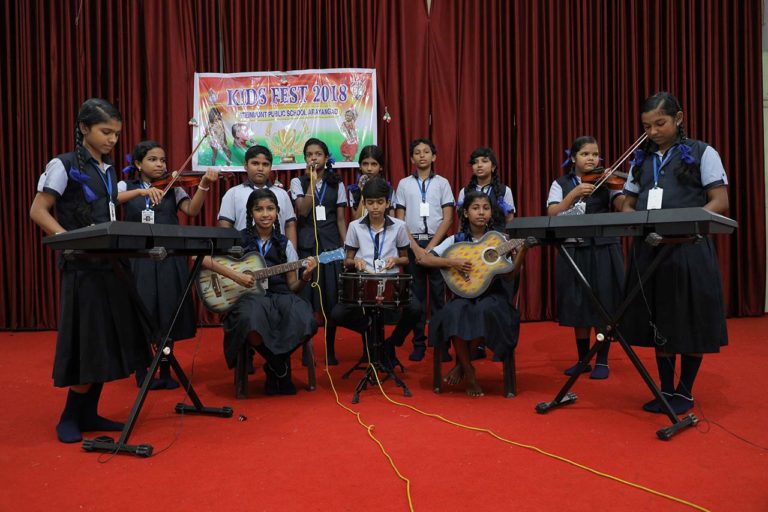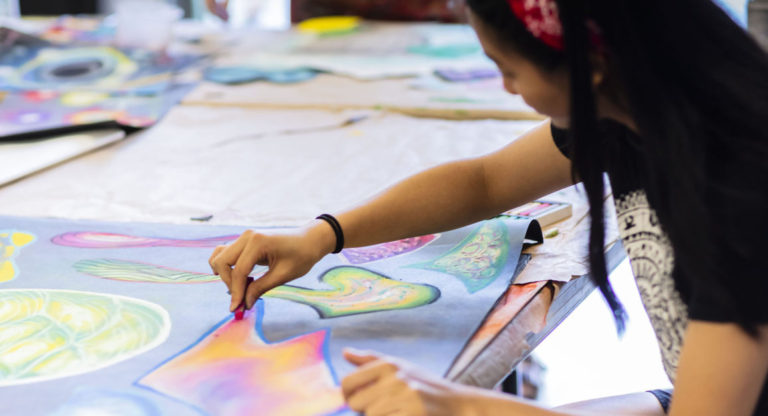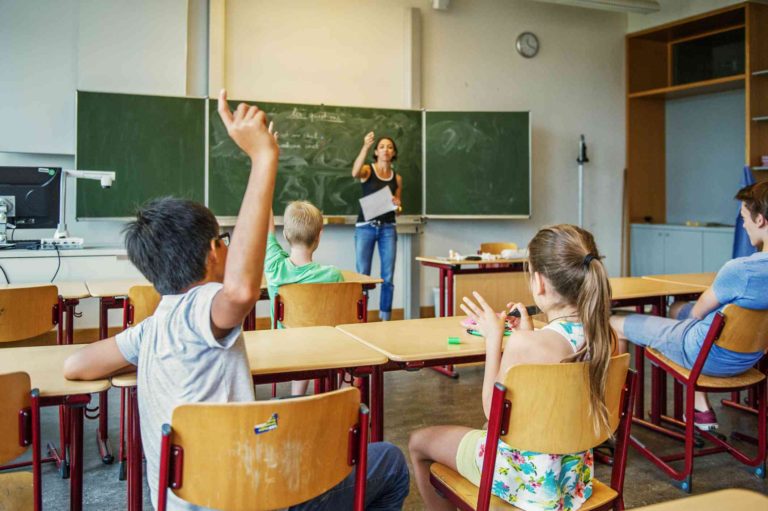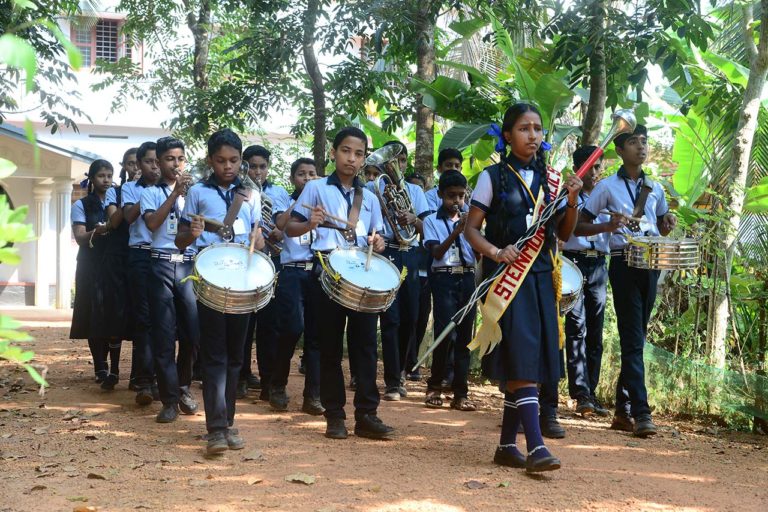To instill the 21st century learning skills, students of Steinmont are engaged in interactive scientific discussions, forming innovative techniques and building a learning culture around education, this led to the formation of the students clubs at the school.
The clubs of the school hone the communicative skills, foster creative thinking, and teach the students to work effectively with others as a team. The extracurricular involvement is one of the few ways that schools can gain insights into the child’s personality.
Children take up responsibilities and achieve success. This helps them discover their innate talent and highlight their abilities, which further helps them during their pursuit for higher studies and in the career, they choose.
Children select their clubs as per their interest and hobbies. All the like-minded children, together, participate in various activities of the club that helps them hone their creativity, critical thinking and problem solving skill

Computers today form an integral part of our lives. There is very little that we can do without computers. Computers and computer chips today embedded in just about everything that we use, from cars to washing machines, to watches and alarm clocks. The cyber club aims to increase students’ awareness of computers and their uses in our daily life, with a view to prepare citizens of tomorrow who are better suited to deal with information technology.
Club Activities:

The Nature Club aims at inculcating an appreciation of nature among students and encouraging them to participate in a variety of conservation initiatives. Its efforts include inviting leading environmentalists to the school to talk to students and sensitize them to the opportunities and challenges in addressing environmental issues, organizing an annual tree-planting day, and participating in important nature-oriented programmes.
Sensitizing our young students to environment related issues is the main purpose of the School’s Eco Club.
Club Activities:

The Literary club is committed to tap effective communication talent among students; club is poised to enable the talents with cutting edge. To develop and hone the literary skills of the students, the club inspires students to develop a taste for literature and also works in the direction of expanding their horizon of spoken and written language. Its intricate agenda includes a variety of activities aimed at building up the confidence and grooming the talents of students in facing various interpersonal challenges and competitions.
The science club will aim at learning new technological and natural phenomena and areas of study in a practical environment. It will start this year by introducing our students to the cosmos and how to view the cosmos with the different types of telescopes and technologies. The students will learn how to align a reflector telescope, how to use and change the different lenses while learning the advantage and disadvantage of using each one, and finally how to track and find different items in the cosmos and enjoy the view. The students will venture aside the city to view the cosmos with their newly acquired knowledge and skills carrying an atlas of the skies.
Sport clubs provide children and youth an opportunity to learn life skills that will assist them in school as well as future careers and personal relationships. By engaging in sports, they learn leadership, teamwork, problem solving, responsibility, self-discipline, and a sense of initiative


Music is one of the most popular co-curricular activities at GSIS. The Music Department of Steinmont offers a number of programme and a wide variety of music study instructions in both Western and Indian categories. Students are provided with vocal training and are also trained in Western musical instruments such as the Piano, Keyboard, Guitars and Trumpets. The students appear for their music theory and practical examinations every year on campus. The students are also trained in a variety of Indian music instruments like the Veena, Violin, Mridangam, Chenda, Sitar, Tabla, Dholak and Flute.

Students are taught diverse forms of Indian classical dance and also the various folk forms that flourish in different parts of India with distinct cultural and aesthetic appeals. We aim to bring together classically-trained dancers and at the same time encourage the rich folk culture of our country. The students are exposed to several classical dance forms in the inter-house dance competitions conducted at the school. During the various events at school, students perform classical dances like Kathak, Kuchipudi,
Bharatanatyam and Mohiniyattam, and folk dances like Gujarati, Punjabi, Marathi and so on. They are also taught Western forms of dances like Zorba. Dance as a subject in the IB curriculum not only mainstreamed Arts into the regular academics, but also witnessed students enthusiastically taking up the subject at the higher levels. Dance is one of the popular subjects for Extended Essay in the IB Diploma Programme. All students who have taken Dance for their Extended Essay so far have been awarded ‘A’.

We strongly believe that Visual Arts forms an integral part of the holistic development of a child. Art enables one to look at the world around them from diverse perspectives. We teach and facilitate Visual Arts in a way that students develop technical and concept making skills to express themselves and bring about transformation. Our endeavor is to nurture sensitive students who are able to retain their innate imagination and explore an array of artistic possibilities.
Apart from the traditional mediums like Drawing, Painting, Clay Modeling, Printmaking and Photography, we also encourage our students to experiment with new age mediums like Digital art, Conceptual and Installation Art, etc. The school regularly organizes art events and awareness programs that foster creativity and art appreciation.

The initiative and capabilities of individual students continuously observed and those with inherent or cultivated leadership qualities selected to the Prefects’ Council. This Council, headed by the School Captain and the Head Girl, manages the students’ affairs. At the house level, the House Master and Mistress and student advisors assisted by senior students, who selected as House Captains and Prefects, manage the activities of the houses. The Prefects’ Council is encouraged to manage its affairs independently, under the guidance of the staff members. While the School Captain and Head Girl serve as the link between the school authorities and the student community, the House Captains serve as the link between the House Masters/Mistresses and the members of the house.

The school has separate Brass and Pipe Bands that steal the limelight during the Founder’s Day celebrations and other important state functions in the district. These units are administered and trained by professional band masters who have retired from the Defence Services.
The International Award for Young People is a global framework for non-formal education, which challenges young people aged 14-24 to dream big, celebrate their achievements and make a difference in their world. We offer participants a shared, purposeful experience with people who are not their usual companions, working towards a common goal. The aim of the Gold Residential Project is to broaden experience through living and working with others, in a residential setting. The aspirants were assessed based on their social interaction or peer relation, teamwork, responsibility, initiative and service work.